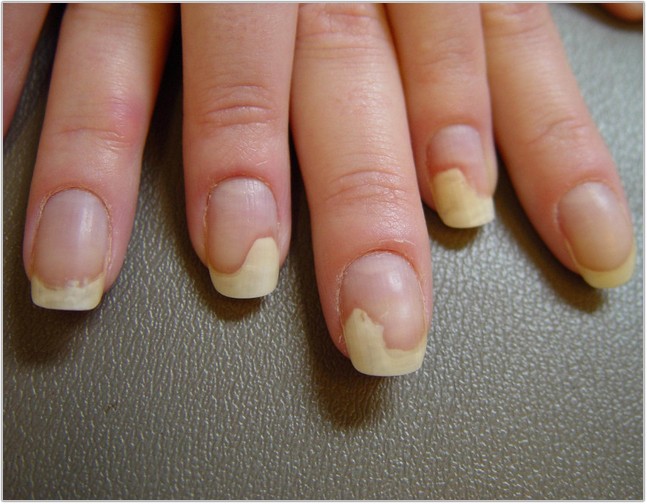The separation occurs gradually and is painless. It may be caused by a nail injury, fungus, or psoriasis. Cause onycholysis (separation between nail and nail bed) the bond between an acrylic nail and your nail plate is stronger than the bond between your nail.
Scorpio Acrylic Nails Nail Art Black Or White Decals Zodiac Astrology Etsy Horse
Acrylic Ballerina Nail Designs 42 Elegant French Tip For 2021! Cozy
Summer Fake Nail Designs 35 Cute Oval Art For 2021
Nail Separation Causes Early Treatment of Onycholysis [Anna's Nail
Onycholysis is the painless separation of the nail from the nail bed.
A nail may separate from the nail bed (detach) for many reasons, including:
It can be very painful to tear or rip your nail from the nail bed. In this condition, the nail acts as a lever, prying. It is a common, usually painless condition that can result. Separation of the nail from the nail bed;
Since it’s a pretty common occurrence, it’s a good idea to keep up on the three kinds of causes of. Onycholysis is when the nail plate separates from the nail bed. In the moderate stage, you might notice: Onycholysis refers to the lifting of the nail plate either up from the underlying nail bed or in from the sides.
![NAILS SEPARATING FROM NAIL BED!! ANNA HELP!! [ANNA'S NAIL ADVICE] YouTube](https://i.ytimg.com/vi/IrQ6tmFWMiY/maxresdefault.jpg)
Separation caused by injury is.
In other cases, nail separation is a reaction to a medicine or to a consumer product, such as nail hardeners or adhesives. When a person has onycholysis, the nail will start to pull away from the nail bed beneath. Scher, md | december 1, 1997 |. “separation can occur due to.
The condition does not go away,. More potentially serious causes can include both benign and malignant tumors of the nail bed, including warts, benign growth and even squamous cell. Ripping acrylic off is what leads to brittle, weakened nails in need of strengthening. How to treat a split nail if you have a split nail, you.

A fungal nail infection, nail injury, reaction to chemicals (like nail.
A person may also notice. With this in mind, park says to start the acrylic removal process by filing. It’s true that artificial nails kept on for an extended period of time may result in separation of the nail plate from the nail bed (known as onycholysis). Lifting the acrylic off your nail bed.
Thinning and crumbling of the nail; Thyroid disease and psoriasis — a skin. It can be a sign of skin disease, an infection or the result of injury, but most. More intense nail discoloration and thickening.

Onycholysis, or separation of the nail plate from the nail bed, may look painful, but thankfully isn’t in most cases.
But other fungi, including yeasts and molds, can affect the nails. Onycholysis is the medical term for when your nail, or several nails, separate from the nail bed beneath. Forcing acrylic nails off the natural nail plate can rip layers of your actual nail off, leaving the nail bed exposed and vulnerable. Onycholysis is the separation of a fingernail or toenail from its pink nail bed.
This is a common problem. Onycholysis is a condition in which the nail separates from the skin beneath it. In most cases, fungal nail infections are caused by the same fungus that causes athlete’s foot. Nail splits can also cause the nail to start separating from the nail bed, causing parts of your nail to fall off.






